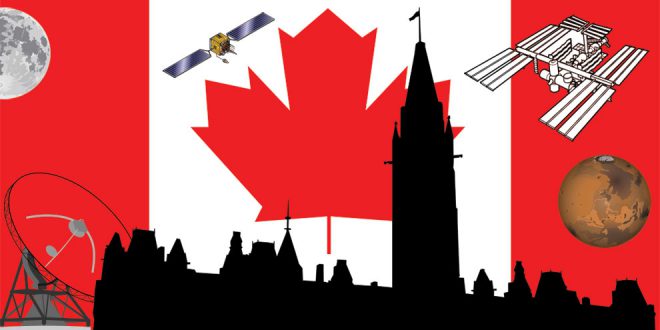Between April 24-28 of this year China and Canada met in Ottawa for the second exploratory discussions on a possible free trade agreement. If Canada moves forward with negotiating a free trade agreement it must ensure that Canada’s domestic space sector is adequately protected, unlike the Comprehensive Economic and Trade Agreement (CETA) agreement with the European Union.
CETA’s provisional implementation date is now set for September 21 and it’s an agreement that will benefit both Canada and the European Union (EU). However, as we previously wrote about on this topic, Canada’s space industry is very concerned about CETA as it appears the deal is lopsided in favour of the EU with respect to the space sector.
Global Affairs Canada has begun to reach out to industry groups to ask if they have any questions with regard to the provisional implementation, now that a date has been set. It’s a little for that. Global Affairs Canada should have been proactive in addressing industry concerns before the deal was finalized. The space sector seems to have been an afterthought in Global Affairs Canada thinking.
Lessons for a China Free Trade Agreement
The one lesson from CETA that space stakeholders should take to heart is that they must insist their industry groups be diligent in dealing with Global Affairs Canada on a free trade deal with China, should it move forward.
Canada would be the first G8 nation to enter into direct free trade agreement negotiations with China. Only Japan of the G8 is currently dealing with China on a free trade agreement, however those negotiations are a trilateral deal with South Korea. Canadian industry groups should also look at agreements recently concluded by China with G20 countries South Korea and Australia for how those free trade deals were implemented.
At this point we don’t know what, if any space sector related provisions would be included in a free trade agreement with China. But industry groups should be preparing in case negotiations move forward.
In the Court of Public Opinion
According to a Nanos poll reported in the Globe and Mail, “an overwhelming majority of Canadians oppose the sale of two domestic technology companies with military customers to Chinese investors and believe these takeovers should be a top priority for national-security reviews, according to a new public opinion survey”.
This comes after the controversial sale of BC based Norsat International Inc. to China’s Hytera Communications Co.
Canadians have concerns about China’s accumulation of Canadian assets, and in particular those with military implications.
China has also recently been in the news on the 20th anniversary of the handover of Hong Kong by announcing that the signed Joint Declaration “was ‘now history’ and no longer had ‘any practical significance nor any binding force‘”.
That Joint Declaration agreement was registered with the United Nations in 1995. If China is willing to renege on a signed agreement of this nature, it brings into question if they can be trusted. And that is what Canadians seems to be saying in the Nanos poll. Can China be trusted? And is China willing to earn Canadians trust?
 SpaceQ Space news and analysis.
SpaceQ Space news and analysis.




